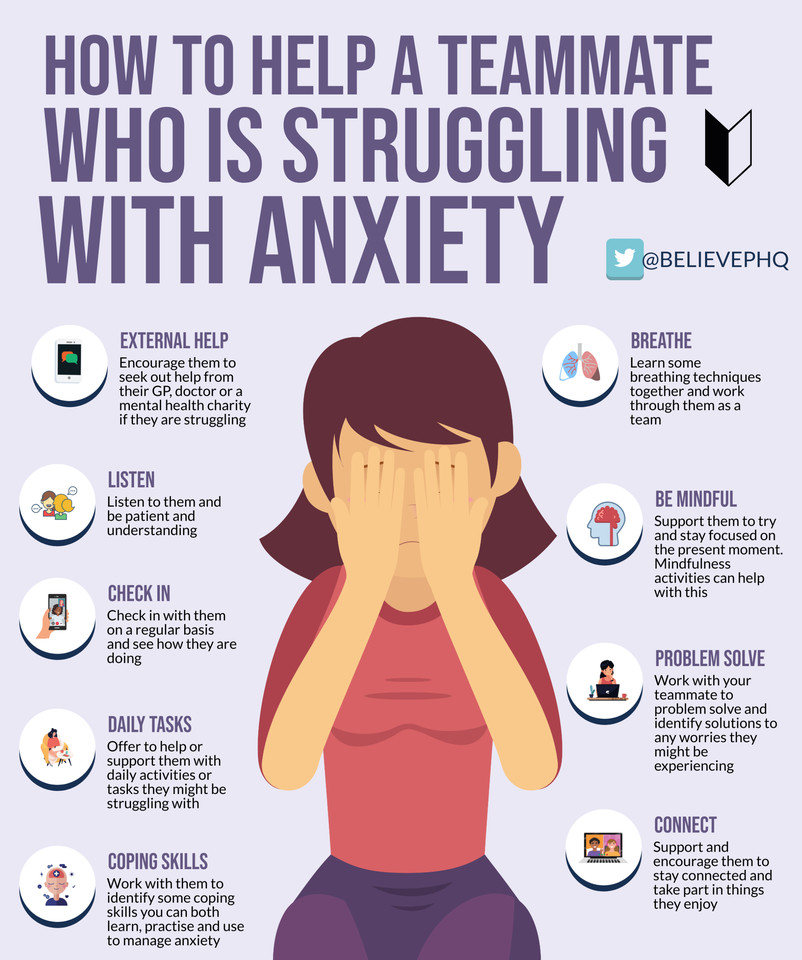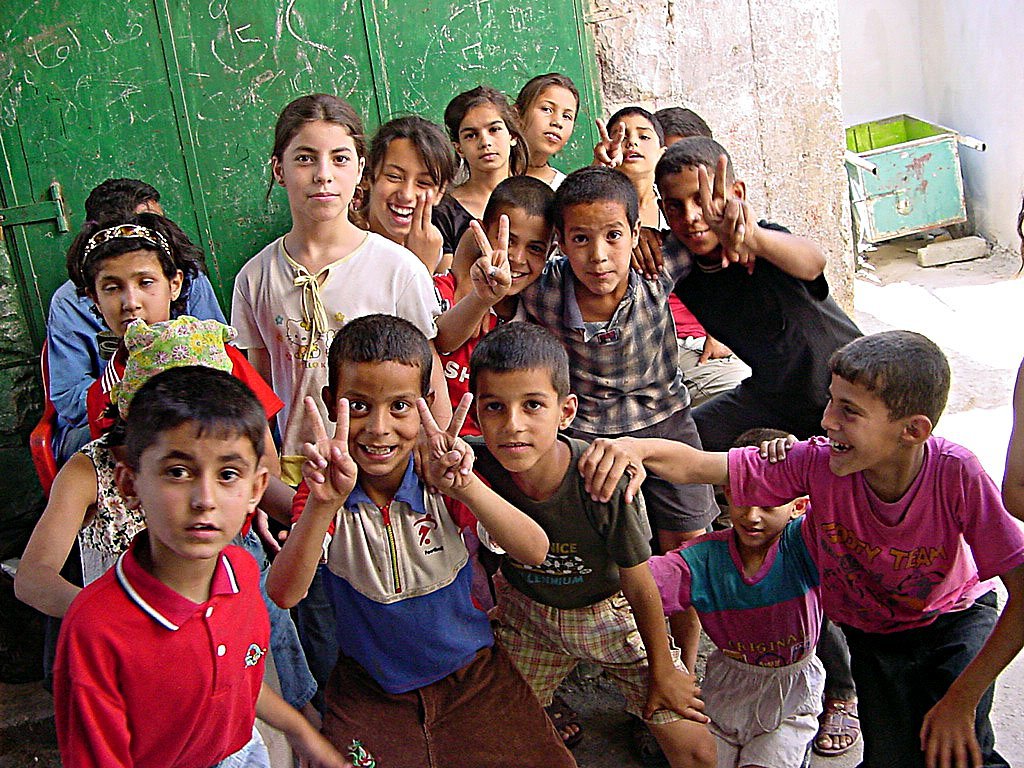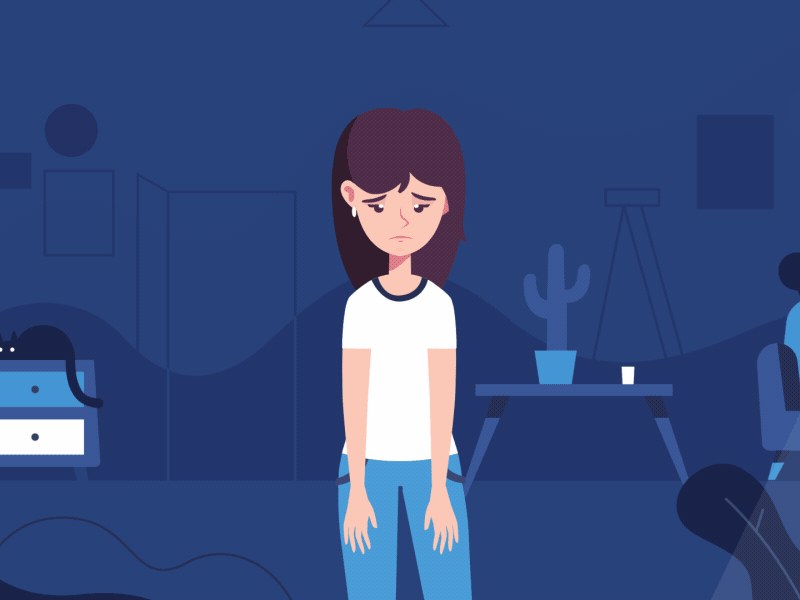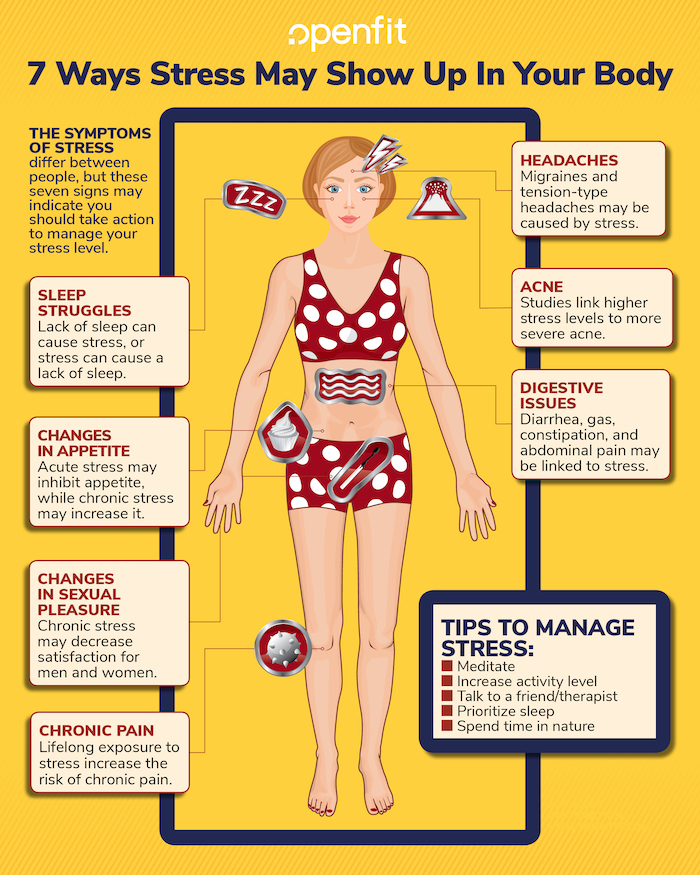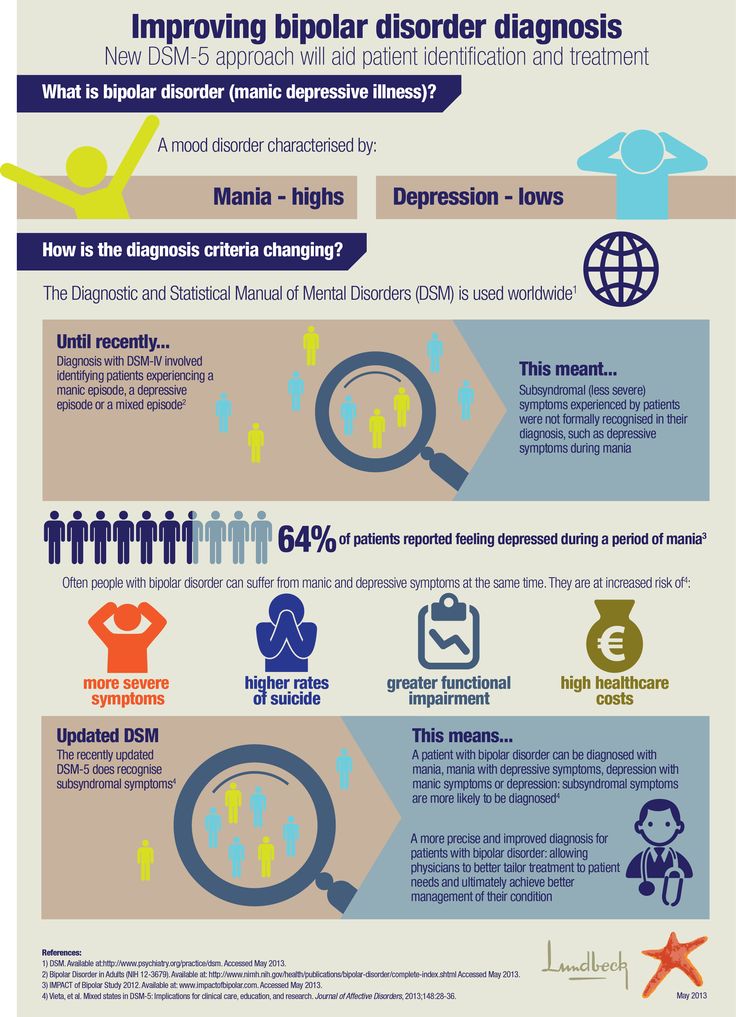Advice for pregnant teens
Having a Healthy Pregnancy (for Teens)
If you've decided to have a baby, the most important thing you can do is to take good care of yourself so you and your baby will be healthy. Girls who get the proper care and make the right choices have a very good chance of having healthy babies.
Prenatal Care
See a doctor as soon as possible after you find out you're pregnant to begin getting prenatal care (prenatal care is medical care during pregnancy). The sooner you start to get medical care, the better the chances that you and your baby will be healthy.
If you can't afford to go to a doctor or clinic for prenatal care, social service organizations can help you. Ask a trusted adult, like a parent or school counselor, to help you find low-cost or free care in your community.
During your first visit, the doctor will ask you lots of questions, including the date of your last period. This helps the doctor work out how long you have been pregnant and your due date.
A baby's due date is only an estimate. In fact, women don't usually deliver exactly on their due dates. Most babies are born between 38 and 42 weeks after the first day of a woman's last period, or 36 to 40 weeks after conception (when the sperm fertilizes the egg).
P
Timelines
A pregnancy is divided into three phases called trimesters. The first trimester is from conception to the end of week 13. The second trimester is from week 14 to the end of week 26. The third trimester is from week 27 to the end of the pregnancy.
The doctor will examine you and do a pelvic exam. Your doctor may also do blood tests, a urine test, and tests for sexually transmitted diseases (STDs). Doctors do this because some STDs can cause serious medical problems in newborns, so it's important to get treatment to protect the baby.
The doctor will probably recommend that you get some immunizations, like a Tdap vaccine to protect your baby against pertussis (whooping cough).
Your doctor will explain the types of physical and emotional changes you can expect during pregnancy. He or she will also teach you to how to recognize the signs of possible problems during pregnancy (you might hear your doctor call problems "complications"). Teens are more at risk for certain problems during pregnancy, such as anemia, high blood pressure, and giving birth earlier than usual (called premature delivery).
Your doctor will want you to start taking prenatal vitamins that contain folic acid, calcium, and iron as soon as possible. The doctor may prescribe the vitamins or recommend a brand that you can buy over the counter. These vitamins and minerals help ensure the baby's and mother's health as well as prevent some types of birth defects.
Ideally, you should see your doctor once each month for the first 28 weeks of your pregnancy, then every 2 weeks until 36 weeks, then once a week until you deliver the baby. If you have a medical condition such as diabetes that needs careful monitoring during your pregnancy, your doctor will probably want to see you more often.
During visits, your doctor or nurse will check your weight, blood pressure, and urine. The doctor or nurse will measure your abdomen to keep track of the baby's growth. After the baby's heartbeat can be heard with a special device, the doctor will listen for it at each visit. Your doctor will probably also send you for some other tests during the pregnancy, such as an ultrasound, to make sure that everything is OK with your baby.
One part of prenatal care is attending classes where moms to be can learn about having a healthy pregnancy and delivery. You can also learn the basics of caring for a new baby. These classes may be offered at hospitals, medical centers, schools, and colleges in your area.
It can be difficult for adults to talk to their doctors about their bodies and even more difficult for teens to do so. Your doctor is there to help you stay healthy during pregnancy and have a healthy baby — and there's probably not much he or she hasn't heard! So don't be afraid to ask questions.
Be frank when your doctor asks questions, even if they seem embarrassing. A lot of the issues the doctor brings up could affect your baby's health. Think of your doctor not just as someone who can help, but also as someone you can confide in about what's happening to you.
P
Changes to Expect in Your Body
Pregnancy causes lots of physical changes in the body. Here are some common ones:
Breast Growth
An increase in breast size is one of the first signs of pregnancy, and the breasts may continue to grow throughout the pregnancy. You may go up several bra sizes during the course of your pregnancy.
Skin Changes
Don't be surprised if people tell you your skin is "glowing" when you are pregnant — pregnancy causes an increase in blood volume, which can make your cheeks a little pinker than usual. And hormonal changes increase oil gland secretion, which can give your skin a shinier appearance. Acne is also common during pregnancy for the same reason.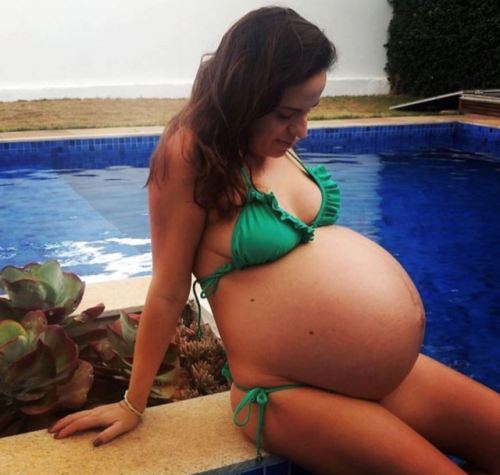
Other skin changes caused by pregnancy hormones may include brownish or yellowish patches on the face called chloasma and a dark line on the midline of the lower abdomen, known as the linea nigra .
Also, moles or freckles that you had prior to pregnancy may become bigger and darker. Even the areola, the area around the nipples, becomes darker. Stretch marks are thin pink or purplish lines that can appear on your abdomen, breasts, or thighs.
Except for the darkening of the areola, which can last, these skin changes will usually disappear after you give birth.
Mood Swings
It's very common to have mood swings during pregnancy. Some girls may also experience depression during pregnancy or after delivery. If you have symptoms of depression such as sadness, changes in sleep patterns, thoughts of hurting yourself, or bad feelings about yourself or your life, tell your doctor so he or she can help you to get treatment.
Pregnancy Discomforts
Pregnancy can cause some uncomfortable side effects. These include:
- nausea and vomiting (especially early in the pregnancy)
- leg swelling
- varicose veins in the legs and the area around the vaginal opening
- hemorrhoids
- heartburn and constipation
- backache
- fatigue
- sleep loss
If you have one or more of these side effects, keep in mind that you're not alone! Ask your doctor for advice on how to deal with these common problems.
If you are pregnant and have bleeding or pain, call the doctor immediately, even if you are not planning to continue the pregnancy.
P
Things to Avoid
Smoking, drinking alcohol, and taking drugs when you are pregnant put you and your baby at risk for a number of serious problems.
Alcohol
Doctors now believe that it's not safe to drink any amount of alcohol when you are pregnant. Drinking can harm a developing fetus, putting a baby at risk for birth defects and mental problems.
Smoking
When a woman smokes while she is pregnant, she can have a
miscarriageor stillbirth. Her baby might be premature (born early), and sudden infant death syndrome (SIDS). SIDS is the sudden, unexplained death of an infant who is younger than 1 year old.
Drugs
Using drugs such as cocaine or marijuana during pregnancy can cause miscarriage, prematurity, and other medical problems. Babies can also be born addicted to some drugs.
Ask your doctor for help if you are having trouble quitting smoking, drinking, or drugs. Check with your doctor before taking any medication while you are pregnant, including over-the-counter medications, herbal remedies and supplements, and vitamins.
Unsafe Sex
Talk to your doctor about sex during pregnancy. If your doctor says it's OK to have sex while you're pregnant, you must use a condom to help prevent getting an STD. Some STDs can cause blindness, pneumonia, or meningitis in newborns, so it's important to protect yourself and your baby.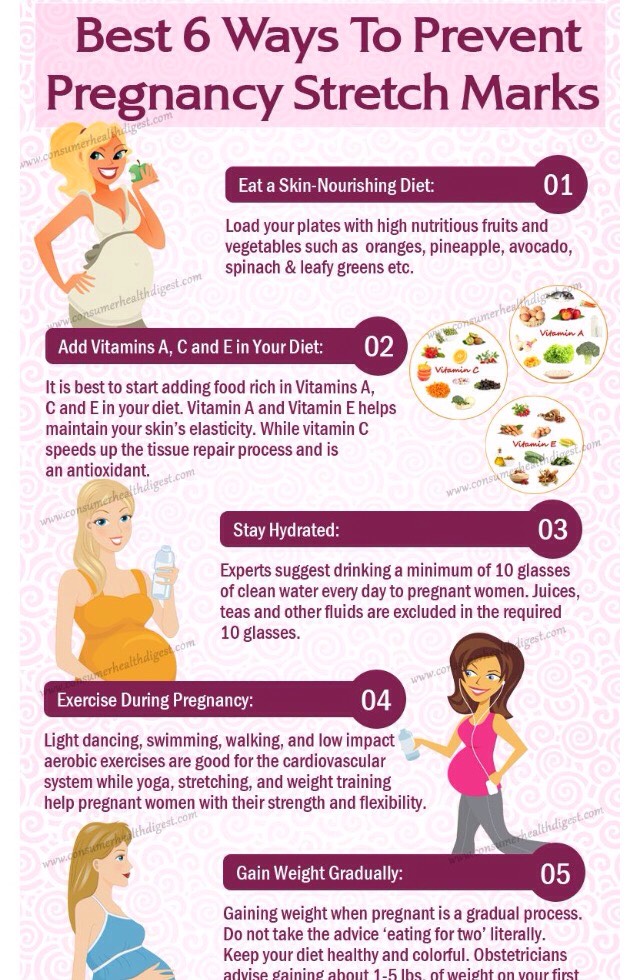
P
Taking Care of Yourself During Pregnancy
Eating
Many girls worry about how their bodies look and are afraid to gain weight during pregnancy. But now that you are eating for two, this is not a good time to cut calories or go on a diet. Both you and your baby need certain nutrients so the baby can grow properly. Eating a variety of healthy foods, drinking plenty of water, and cutting back on high-fat junk foods will help you and your developing baby to be healthy.
Doctors generally recommend adding about 300 calories a day to your diet to provide adequate nourishment for the developing fetus. You should gain about 25 to 35 pounds during pregnancy, most of this during the last 6 months — although how much a girl should gain depends on how much she weighed before the pregnancy. Your doctor will advise you based on your individual situation.
Eating additional fiber — 25 to 30 grams a day — and drinking plenty of water can help to prevent common problems such as constipation. Good sources of fiber are fresh fruits and vegetables and breads, cereals, or muffins that have lots of whole grain in them.
Good sources of fiber are fresh fruits and vegetables and breads, cereals, or muffins that have lots of whole grain in them.
You'll need to avoid eating or drinking certain things during pregnancy, such as:
- certain types of fish, such as swordfish, canned tuna, and other fish that may be high in mercury (your doctor can help you decide which fish you can eat)
- foods that contain raw eggs, such as mousse or Caesar salad
- raw or undercooked meat and fish
- processed meats, such as hot dogs and deli meats
- soft, unpasteurized cheeses, such as feta, brie, blue, and goat cheese
- unpasteurized milk, juice, or cider
It's also a good idea to limit food or drinks that contain caffeine and artificial sweeteners.
Exercise
Exercising during pregnancy is good for you as long as you are having an uncomplicated pregnancy and choose appropriate activities. Doctors generally recommend low-impact activities such as walking, swimming, and yoga.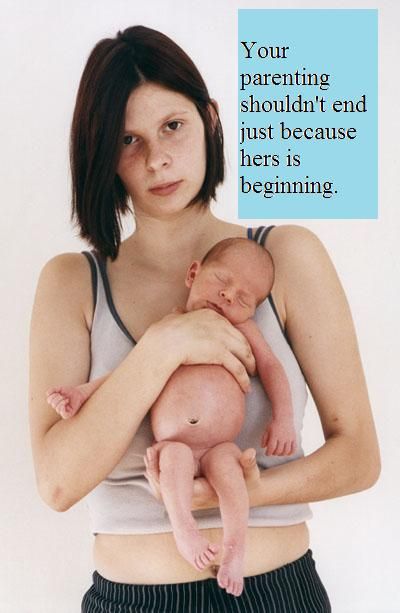 Contact sports and high-impact aerobic activities that pose a greater risk of injury should generally be avoided.
Contact sports and high-impact aerobic activities that pose a greater risk of injury should generally be avoided.
Also, working at a job that involves heavy lifting is not recommended for women during pregnancy. Talk to your doctor if you have questions about whether particular types of exercise are safe for you and your baby.
Sleep
It's important to get plenty of rest while you are pregnant. Early in your pregnancy, try to get into the habit of sleeping on your side. Lying on your side with your knees bent is likely to be the most comfortable position as your pregnancy progresses. Also, it makes your heart's job easier because it keeps the baby's weight from applying pressure to the large vein that carries blood back to the heart from your feet and legs.
Some doctors recommend that girls who are pregnant sleep on the left side. Because of where some of your major blood vessels are, lying on your left side helps keep the uterus from pressing on them. Ask what your doctor recommends — in most cases, lying on either side should do the trick and help take some pressure off your back.
Throughout your pregnancy, but especially toward the end, you may wake up often at night to go to the bathroom. While it's important to drink enough water while you're pregnant, try to drink most of it during the day rather than at night. Use the bathroom right before going to bed.
As you get further along in your pregnancy, you might have a difficult time getting comfortable in bed. Try positioning pillows around and under your belly, back, or legs to get more comfortable.
Stress can also interfere with sleep. Maybe you're worried about your baby's health, about delivery, or about what your new role as a parent will be like. All of these feelings are normal, but they may keep you up at night. Talk to your doctor if you are having problems sleeping during your pregnancy.
P
Vaccines
Your doctor may recommend that you get several vaccines during pregnancy. The flu shot can lessen the awful effects of that illness. And the vaccine is safe — studies show no harmful effects to a fetus.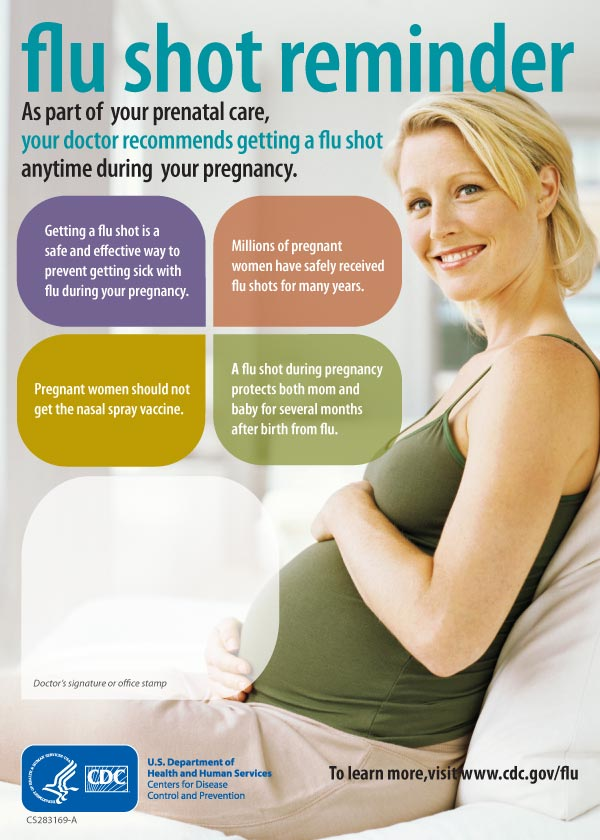 It also helps protect a mother and her baby from getting the flu (and other viruses) in the baby's first year of life. Pregnant women should only get the shot made with the inactivated virus. The flu vaccine previously also came in a nasal spray (or mist) form, but it contained live strains of the virus and was never safe for moms-to-be. Currently, the nasal spray is not recommended for anyone because it didn't prevent cases of the flu between 2013 and 2016.
It also helps protect a mother and her baby from getting the flu (and other viruses) in the baby's first year of life. Pregnant women should only get the shot made with the inactivated virus. The flu vaccine previously also came in a nasal spray (or mist) form, but it contained live strains of the virus and was never safe for moms-to-be. Currently, the nasal spray is not recommended for anyone because it didn't prevent cases of the flu between 2013 and 2016.
The Tdap vaccine (against tetanus, diphtheria, and pertussis) is now recommended for all pregnant women in the second half of each pregnancy, regardless of whether they've gotten it before or when it was last given. This recommendation is in response to a rise in pertussis (whooping cough) infections, which can be fatal in newborns who have not yet had their routine vaccinations.
Emotional Health
It's common for pregnant teens to feel a range of emotions, such as fear, anger, guilt, confusion, and sadness.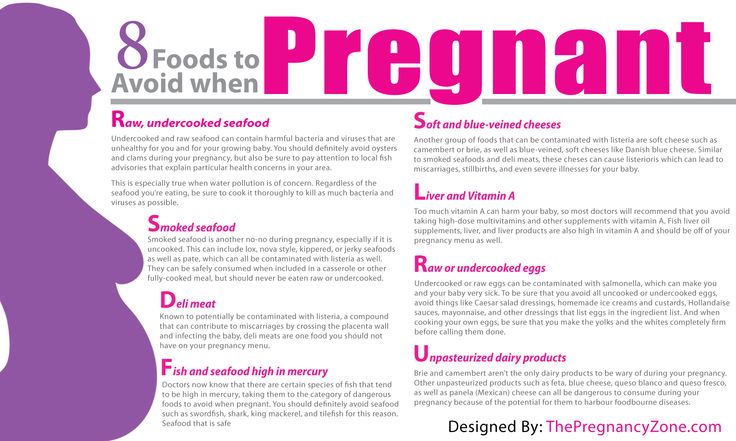 It may take a while to adjust to the fact that you're going to have a baby. It's a huge change, and it's natural for pregnant teens to wonder whether they're ready to handle the responsibilities that come with being a parent.
It may take a while to adjust to the fact that you're going to have a baby. It's a huge change, and it's natural for pregnant teens to wonder whether they're ready to handle the responsibilities that come with being a parent.
How a girl feels often depends on how much support she has from the baby's father, from her family (and the baby's father's family), and from friends. Each girl's situation is different. Depending on your situation, you may need to seek more support from people outside your family. It's important to talk to the people who can support and guide you and help you share and sort through your feelings. Your school counselor or nurse can refer you to resources in your community that can help.
Sometimes girls who are pregnant have miscarriages and lose the pregnancy. This can be very upsetting and difficult to go through for some girls, although it may bring feelings of relief for others. It is important to talk about these feelings and to get support from friends and family — or if that's not possible, from people such as counselors or teachers.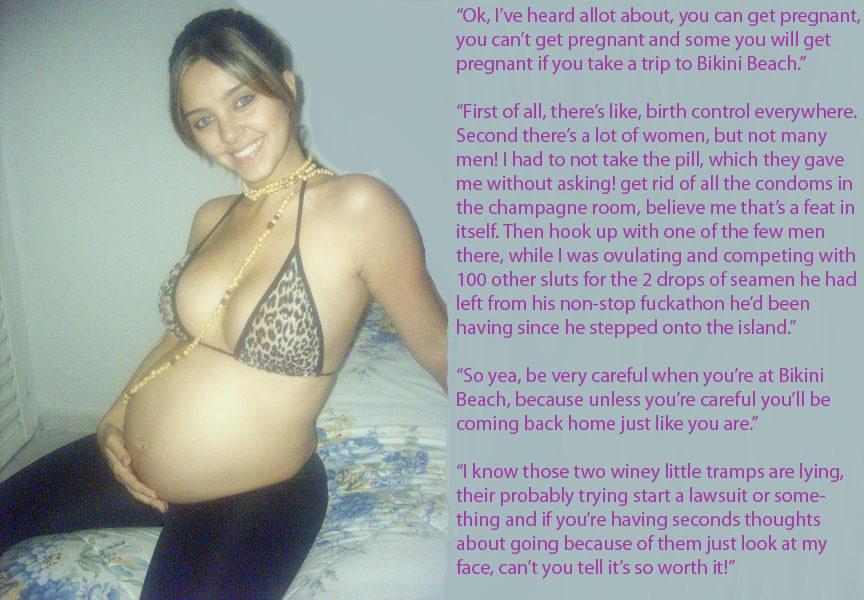
School and the Future
Some girls plan to raise their babies themselves. Sometimes grandparents or other family members help. Some girls decide to give their babies up for adoption. It takes a great deal of courage and concern for the baby to make these difficult decisions.
Girls who complete high school are more likely to have good jobs and enjoy more success in their lives. If possible, finish high school now rather than trying to return later. Ask your school counselor or an adult you trust for information about programs and classes in your community for pregnant teens.
Some communities have support groups especially for teen parents. Some high schools have child-care centers on campus. Perhaps a family member or friend can care for your baby while you're in school.
You can learn more about what to expect in becoming a parent by reading books, attending classes, or checking out reputable websites on child raising. Your baby's doctor, your parents, family members, or other adults can all help guide you while you are pregnant and after the baby is born.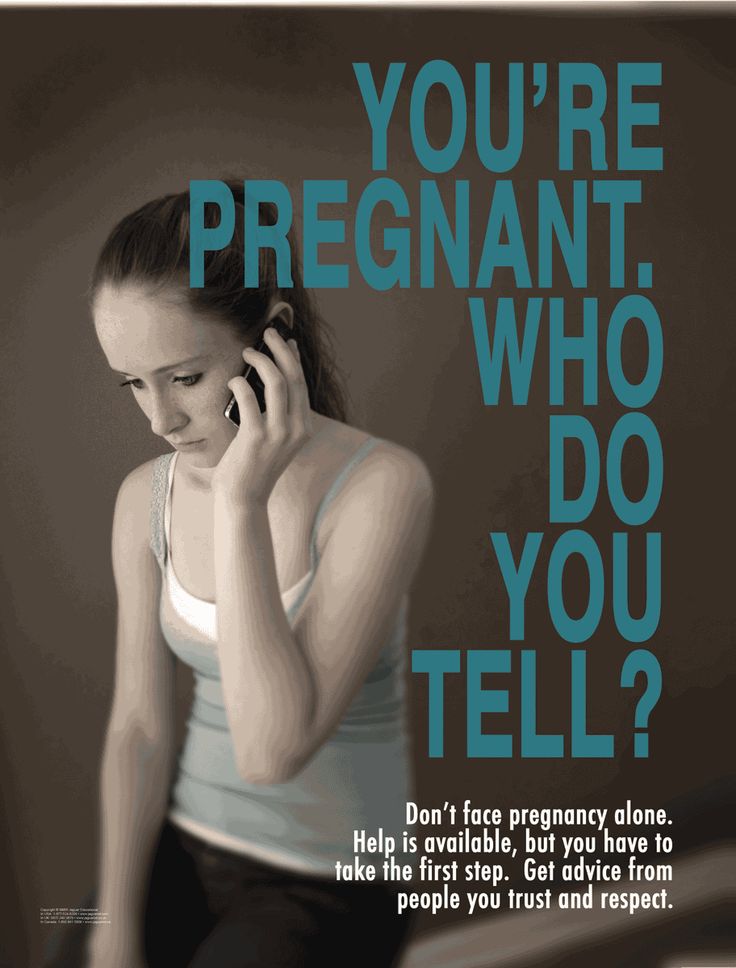
Help Pregnant Teens Know Their Options: AAP Policy Explained
By: Elise D. Berlan, MD, MPH, FAAP
Teenage pregnancy rates have been declining for decades, recently dropping to their lowest point in more than 70 years in the United States. Still, many girls in their teens or younger become pregnant each year. To help sort through the life-changing and emotional decisions they face, pregnant adolescents need prompt and straightforward information and judgment-free medical guidance, support and care.
In our policy statement, "Options Counseling for the Pregnant Adolescent Patient," the American Academy of Pediatrics (AAP) explains how to help teens get prompt medical care and basic, accurate information about all their options—while respecting everyone's personal, spiritual and cultural perspectives. These options usually include having and raising the baby, making plans for relatives or an adoptive family to raise the baby or terminating the pregnancy.
Federal and state policies may threaten to restrict health care providers from providing pregnant teens with unbiased counseling that includes the full range of pregnancy options. However, our approach to this issue has not changed since our original policy statement on the issue in 1989.
When children have children
Most teenagers who become pregnant decide to continue the pregnancy. Adolescents, especially younger ones, are more likely than women in their 20s to have medical complications during pregnancy. Their babies are also more likely to be born preterm, with low birth weight, and are less likely to survive. It's important to connect pregnant teens with early prenatal care and to encourage a healthy lifestyle—a well-balanced diet, daily exercise and staying away from tobacco, alcohol and drugs.
If the teen decides to have and raise the baby, they may need help identifying a strong support system. Teens and young girls who have babies can certainly achieve their personal life goals and raise healthy successful children, but often they will have more challenges to overcome.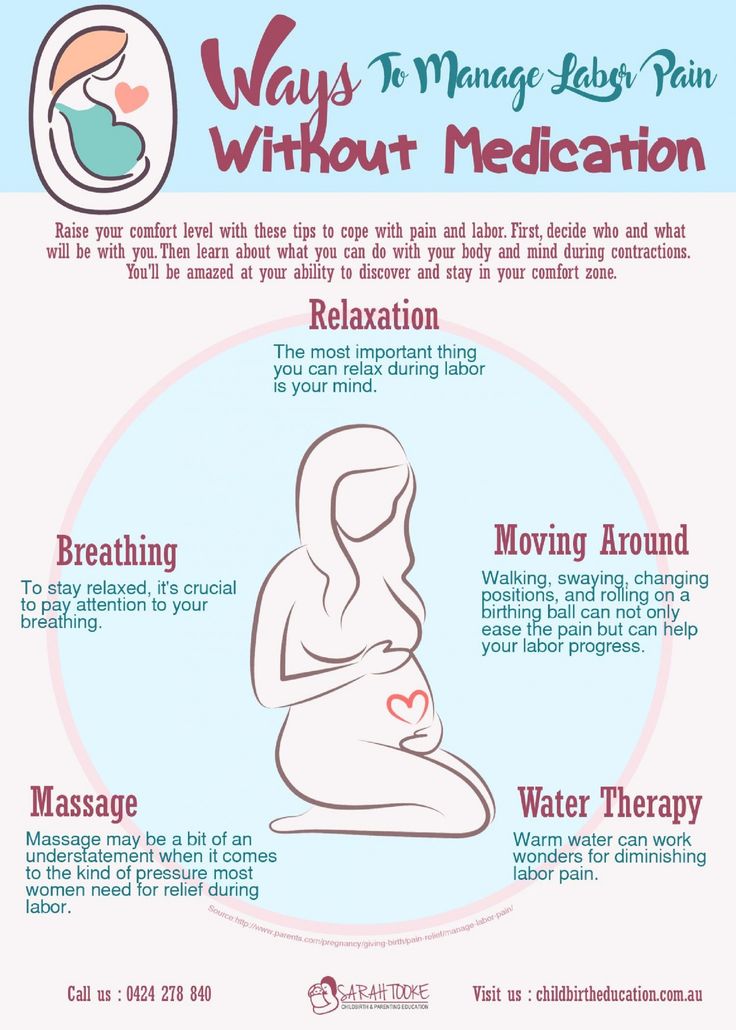 See "Helping Teen Parents and Their Children Build Healthy Futures."
See "Helping Teen Parents and Their Children Build Healthy Futures."
Kinship care or foster care
In kinship care arrangements, which have become increasingly common in recent years, a grandparent or other relative serves as a parent to the infant. This may be through an informal, private arrangement or through child welfare systems, which vary by state. Some adolescents may choose foster care for their baby when kinship care is unavailable or not suitable.
Kinship care arrangements can give a teen an opportunity to be involved with raising their child, as well as the chance to take on responsibilities of parenthood in the future. Growing evidence also suggests that babies in kinship care arrangements fare better than those cared for by unrelated foster parents. However, kinship care arrangements face unique challenges.
If you are considering raising your grandchild, here are some things to keep in mind:
Most children living with relatives are in informal arrangements, and this creates a problem if the relatives do not have the authority to give legal consent for needed medical care, including immunizations and other non-emergency health services.
 Your pediatrician can help connect you with community legal resources to help you take steps to gain legal authority to help children get the medical care they need to stay healthy.
Your pediatrician can help connect you with community legal resources to help you take steps to gain legal authority to help children get the medical care they need to stay healthy.Older family caregivers who haven't parented an infant for several years may not be aware of changes to safety standards for sleep, car seats and injury prevention.
Raising an infant the second time around can be a deeply rewarding and invigorating experience. However, it's a good idea for older caregivers to have a plan in place for guardianship in the event they experience health declines.
Adoption
Adoption is another option for teens who want to have their baby but don't feel ready or able to become a parent. About one to two million families are currently waiting to adopt, love and care for a baby in the United States.
The decision to place a baby with an adoptive family is legal and binding. However, most states do allow the birth mother anywhere from several days to several months after the child is born to change their mind.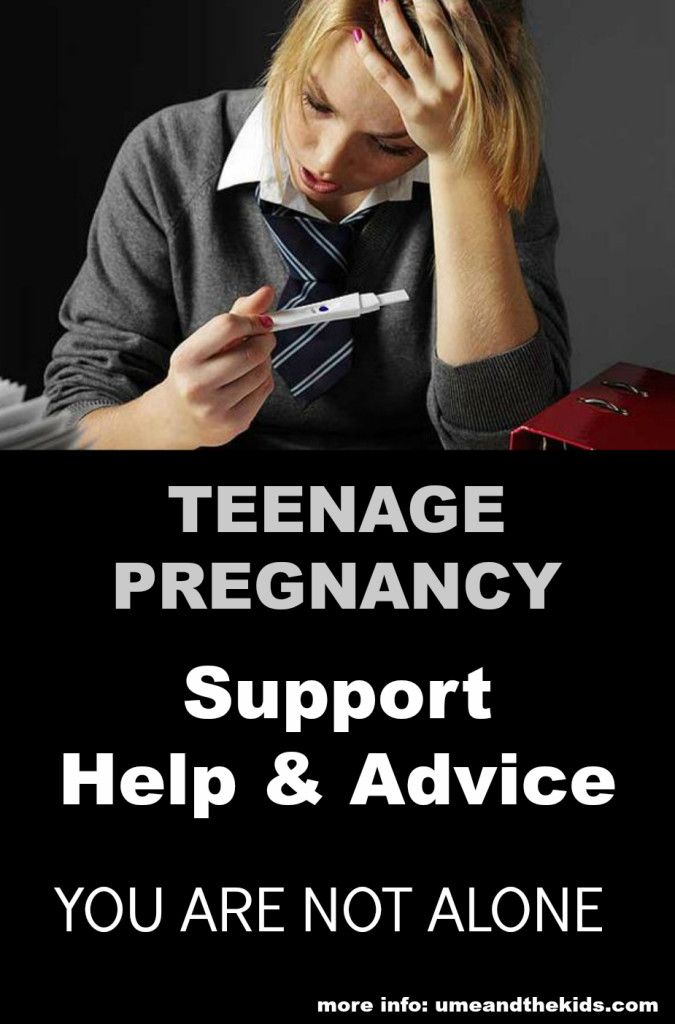 Information about adoption laws can be found on the
Child Welfare Information Gateway, which is a service of the Children's Bureau in the U.S. Department of Health and Human Services.
Information about adoption laws can be found on the
Child Welfare Information Gateway, which is a service of the Children's Bureau in the U.S. Department of Health and Human Services.
If your teen is considering adoption, here are some basic things to know:
The adoption process can take place through public or private channels and be closed or open.
In public adoptions, the child is placed in a family by an agency operated or contracted by the state.
In private or independent adoptions, the birth parents may work with an attorney, physician, clergy member, or a licensed or unlicensed facilitator.
In closed adoptions, the names of the birth mother and the adoptive parents are kept secret from each other.
In open adoptions, the birth parent may choose to personally select the adoptive parents, meet with them, and even maintain contact and an ongoing relationship.
 Open adoptions, research shows, may lessen feelings such as grief or guilt some birth parents who make an adoption plan for their child may experience.
Open adoptions, research shows, may lessen feelings such as grief or guilt some birth parents who make an adoption plan for their child may experience.
Abortion
Because some pregnant teens will consider abortion, the AAP believes they should be offered accurate information free of judgment. Because of the harms of restrictive abortion laws and the dangers of unsafe abortions, adolescents should have access to legal abortion services. The AAP respects the diversity of beliefs about abortion and encourages any teenager considering an abortion talk to a parent or trusted adult before making such a big decision.
Teens who feel safe and are willing to involve their parents in their abortion decision, as most are, usually benefit from adult experience, wisdom, emotional and financial support. Parental notification laws exist and vary from state to state.
See Confidentiality for Teens Considering Abortion: AAP Policy Explained for more information.
If your teen is considering abortion:
Talk to your pediatrician about local laws affecting the availability of pregnancy termination options and where to find trained and licensed providers in your community or region. Medical and surgical abortions are safe when performed by licensed and experienced physicians.
Out-of-pocket costs for abortion services can be a barrier for pregnant teens and their families. Lack of money can cause delays, which can lead to more complicated procedures further along in the pregnancy. Sources of financial assistance may be available in your community or state.
Use caution before speaking with a "pregnancy crisis center." Many of these offices have an agenda and may not offer accurate, non-judgmental counseling. For accurate information, it is best to talk with your pediatrician, or someone recommended by your provider.
Remember, pregnant teens need access to all options available to them—not judgment.

Finding out they're pregnant is a sensitive and emotional time for a teen, their family, and their sexual partner. Whatever their decision—to become a parent, make an adoption or kinship care plan, or have an abortion—it will likely have life-changing consequences. Creating an accepting environment for a pregnant teen allows them to feel safe to explore their own feelings about the pregnancy and their future.
More information
-
Contraception Explained: Options for Teens & Adolescents
- Guttmacher Institute
- National Abortion Federation Hotline
- Repro Legal Helpline
- Plan C
- The National Campaign to Prevent Teen Pregnancy
About Dr. Berlan
Dr. Berlan is a member of the AAP Committee on Adolescence and lead author of the updated policy statements,
Options Counseling for the Pregnant Adolescent Patient, and
The Adolescent's Right to Confidential Care When Considering Abortion.
The information contained on this Web site should not be used as a substitute for the medical care and advice of your pediatrician. There may be variations in treatment that your pediatrician may recommend based on individual facts and circumstances.
Early adolescent pregnancy
01/29/2020
Early pregnancy is a medical, psychological and acute social problem of modern society. The age of such pregnancy varies from 10 to 18 years. The most common age for teen pregnancy is 15-17 years old. Why is this happening? How to prevent early pregnancy
Causes of early pregnancy
The problem of teenage pregnancy occurs, as a rule, for several reasons at the same time and it is rarely possible to fix one specific
- Sexual education of the child, or rather its absence. In today's adolescents, puberty begins at the age of 12, and their sexual desire also occurs earlier.
 It is very important to psychologically prepare the child for the upcoming changes in his intimate life, and continue to engage in sexual education until it is fully established. Often, parents do not have time to talk with the child on this topic, which can lead to unpleasant consequences such as infections or sexually transmitted diseases. Adolescents do not have sufficient information about sexuality.
It is very important to psychologically prepare the child for the upcoming changes in his intimate life, and continue to engage in sexual education until it is fully established. Often, parents do not have time to talk with the child on this topic, which can lead to unpleasant consequences such as infections or sexually transmitted diseases. Adolescents do not have sufficient information about sexuality. - Sexual promiscuity. This factor is more common in the so-called "bad companies", where children gather who do not have any extracurricular useful hobbies or responsibilities. The teenager wants to prove to friends from the "bad company" that he is already an adult and more experienced than his peers. We must not miss the point that the implementation of such actions often occurs under the influence of alcohol or drugs. Psychologists say that more active and aggressive children are more likely to experience early pregnancy.
- Lack of knowledge about contraceptives or lack of funds to purchase them.
 Lack of knowledge about contraceptives, fear when buying, inability to use them or embarrassment when storing them at home also lead to such serious consequences. Parents are obliged to explain to their growing child what a condom is, what it is for, how to use it and where to buy it. If a teenager is embarrassed to buy a product in a pharmacy, parents can take care of this by buying the package themselves and inform their son or daughter about this.
Lack of knowledge about contraceptives, fear when buying, inability to use them or embarrassment when storing them at home also lead to such serious consequences. Parents are obliged to explain to their growing child what a condom is, what it is for, how to use it and where to buy it. If a teenager is embarrassed to buy a product in a pharmacy, parents can take care of this by buying the package themselves and inform their son or daughter about this. - Violence. Frequently, violent sexual acts occur within dysfunctional families where the perpetrator is a male relative. The reason for withholding this information from relatives is fear and shame. But, unfortunately, no one is immune from street rape.
Talk to your daughter about how to avoid dark alleys and streets at night, try not to be alone on the street at night, take care of the attacker's protective equipment (for example, buy a gas canister for her). - Planned pregnancy. Adolescents overwhelmed with feelings consciously conceive at 14-17 years of age.
 Thus, a teenage girl is trying to keep a young man, to prove to adults that she is already ready for an independent life, to show everyone her convictions that the age has come when she can become a mother. In this case, parents need to be more attentive to their children in love, talk in a timely manner about the fact that early pregnancy can cause complications in the health of the expectant mother or child, cause gynecological diseases and further infertility.
Thus, a teenage girl is trying to keep a young man, to prove to adults that she is already ready for an independent life, to show everyone her convictions that the age has come when she can become a mother. In this case, parents need to be more attentive to their children in love, talk in a timely manner about the fact that early pregnancy can cause complications in the health of the expectant mother or child, cause gynecological diseases and further infertility.
Psychological problems
Pregnancy in a teenage girl does not have the best effect on her psycho-emotional state. Upon learning of the pregnancy, which usually happens with a significant delay, young pregnant women first experience shock and guilt, get scared, lost and start to panic. It is almost impossible for a teenager with his still unformed and childish psyche to assess the situation and solve the problem on his own.
Some plunge into depression, while others hope for self-elimination of the problem - what if the pregnancy resolves or I just made a mistake. An important role in providing psychological assistance and support can be played by an adult with whom the minor has a trusting relationship. It can be a mother or grandmother, a school teacher or a psychologist, an older friend (neighbor, friend of the parents).
An important role in providing psychological assistance and support can be played by an adult with whom the minor has a trusting relationship. It can be a mother or grandmother, a school teacher or a psychologist, an older friend (neighbor, friend of the parents).
It is on how an adult behaves in this situation, having heard about the shocking news, the further behavior of the teenager, his decision on the outcome of the pregnancy, and in the case of gestation, the correct attitude towards his position and attitude to motherhood depend.
Trying to hide their situation, teenagers lead an asocial lifestyle to the last, possibly even before childbirth, smoke, use drugs and alcohol, hide their stomachs in every possible way with tight clothes, do not want to visit a doctor and follow his recommendations, which cannot but affect the health of the born child and young mother.
The psychological unpreparedness of the girl for motherhood either forces her to abandon the child while still in the hospital, or completely withdraw from his upbringing.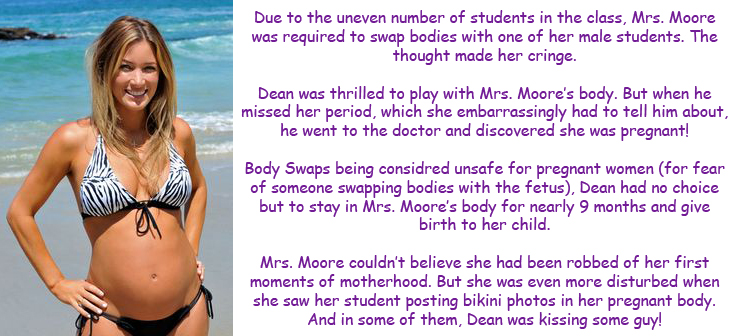 Such a child is perceived by the young mother as a living reproach and grows up in the absence of love and affection.
Such a child is perceived by the young mother as a living reproach and grows up in the absence of love and affection.
Prevention of early pregnancy
The sexual education of a child depends only on the parents, their ability to find a common language with a teenager, the ability to listen and hear. Do not be shy to talk to your child about intimate life. It is necessary to come from afar and gradually expand the horizons of the child in this matter with films, books or presentations. Do not be shy to talk with a teenager about contraception and the consequences of sexual intercourse.
It is better to always try to maintain friendly relations with the child in order to be aware of changes in his personal life and, if necessary, help with wise advice or moral support. All sorts of jokes and ridicule will be inappropriate.
Pregnancy in a teenager is not a terrible sentence. The chances of a favorable outcome of early pregnancy are quite high. The main thing to remember is that during this period, a teenager needs the support of relatives and friends more than ever, and then a healthy and beloved baby will be born.
The main thing to remember is that during this period, a teenager needs the support of relatives and friends more than ever, and then a healthy and beloved baby will be born.
Return to the list
Underage pregnancy from practice. Arina, 16 years old. pregnancy discovered mother, when she asked her daughter why the pads do not decrease, and Arina replied that She hasn't had her period for a long time. Arina had two sexual intercourses with her friend. On By the time the pregnancy was established, they had already separated. Mother took Arina to abortion, but it turned out that the period was already 5 months, it was too late to have an abortion. Them offered to induce artificial labor, but the doctor explained the danger of such procedures for the health and life of a girl. Mom refused it and decided keep the pregnancy. Arina completely followed the opinion and words of the mother. The girl looked lost She was in a state of shock, most of the time she was silent.
 child's father and his parents refused to participate in the fate of the child.
child's father and his parents refused to participate in the fate of the child.
there was a violation of Arina's contact with her peers. Friends went to discos, talked about boys, dressed up, and the girl was with them no longer interested. Arina tried to read about pregnancy, childbirth, children, but She had no opportunity to discuss this with anyone except her mother. By childbirth, the girl is already practically did not communicate with her friends, she was more alone, she said that together became completely uninteresting.
The second problem area was her attitude to childbirth. The girl was very afraid of them, but at the same time refused to go to training courses to childbirth at female consultation. This was probably due to the general motherhood resistance. After the birth of the child, this was expressed in a rapid the disappearance of milk and the transfer of the daughter to artificial nutrition.
with a lack of understanding of the needs of the child. Arina at first led quite aloofly herself with the child, her tension was felt when she took her daughter in her arms. The girl spoke little to her, was embarrassed to do this in front of strangers. It's hard for her I had to understand how you can communicate with a child who does not yet speak. Arina's mother assumed the main function of interaction with the child, and the girl tried to repeat what her mother does.
Arina at first led quite aloofly herself with the child, her tension was felt when she took her daughter in her arms. The girl spoke little to her, was embarrassed to do this in front of strangers. It's hard for her I had to understand how you can communicate with a child who does not yet speak. Arina's mother assumed the main function of interaction with the child, and the girl tried to repeat what her mother does.
Case from practice. Anastasia, 16 years old. Young woman got pregnant while vacationing at a children's camp. Parents were in shock a real scandal broke out, my father had a heart attack. But Nastya clearly stated that she would give birth. On the side of the girl was her eldest nineteen-year-old sister Marina. The girls together reassured their parents, convinced them to have a baby. Nastya was in a euphoric, enthusiastic condition. Went to childbirth preparation courses at the antenatal clinic, in on the Internet on various forums I communicated with other pregnant women and young mothers, transferred to school at home schooling, began to prepare things for newborn, choose a name. The birth was easy. The girl was breastfeeding constantly talking and playing with the child. Easily and joyfully interacted with daughter. The girl kept contacts with her friends, many of them came sit with the baby, bring gifts.
The birth was easy. The girl was breastfeeding constantly talking and playing with the child. Easily and joyfully interacted with daughter. The girl kept contacts with her friends, many of them came sit with the baby, bring gifts.
Nastya after the birth of a child, many new friends appeared - young mothers. The girl builds educational plans. She decided to become a hairdresser, she is already moonlighting, doing simple haircuts and hairstyles at home. The girl does not consider
that the child can be a barrier to privacy. When my daughter was six months old, she dating a young man, the relationship has been going on for 8 months.
Generalization: As can be seen from these two cases, a lot depends on the personality maturity of the girl, her psychological characteristics and awareness of motherhood. Arina was quiet, closed, little contact girl, for whom adaptation to motherhood turned out to be a complex and lengthy process. Nastya, on the contrary, gladly accepted the role of mother as a new and colorful stage in her life, strongly and confidently defended her decision to give birth to a child, actively builds and implements plans for future. However, certain features can be identified specifically for this age group of pregnant women.
Nastya, on the contrary, gladly accepted the role of mother as a new and colorful stage in her life, strongly and confidently defended her decision to give birth to a child, actively builds and implements plans for future. However, certain features can be identified specifically for this age group of pregnant women.
Problematic zones of this age group:
1. Certain physiological and psychological unpreparedness for the birth and upbringing of a child.
Psychological research data show about the distorted formation of the maternal sphere, unformed motivation motherhood and infantile attitude to pregnancy in adolescent girls, expecting a child. They are more susceptible to pressure in their decision making. family and social environment. For example, Galin A.P. examined
80 underage girls who terminated pregnancy. During the anonymous When questioning a girl, the most common reason for an abortion was: negative attitude towards the pregnancy of relatives, the desire not to burden one's own personal life, lack of conditions for raising a child, desire to continue study, work. When asked what the girl would do if these obstacles were removed, 60% answered that they would keep the pregnancy, and 40%, that they would still have an abortion. It can be assumed that these 40% belong to group psychologically unprepared for motherhood, and the remaining 60% were under the influence of the social environment.
When asked what the girl would do if these obstacles were removed, 60% answered that they would keep the pregnancy, and 40%, that they would still have an abortion. It can be assumed that these 40% belong to group psychologically unprepared for motherhood, and the remaining 60% were under the influence of the social environment.
2. As a rule, the absence of a husband, or, if he is the same age, his unwillingness to create complete family.
Often the father of the child is also a minor, therefore cannot provide support to the pregnant woman, disclaiming responsibility for pregnancy. But there is evidence of what is being said about minors. fathers is not entirely correct. A number of studies have shown that young girls in the majority cases conceive children from young adults. For example, Galin A.P. on a sample of teenage girls showed that their sexual partners were 3-4 years older, their mean age was 21.7+/-0.9of the year. At the main motives for the beginning of sexual activity were "falling in love, love" - 66%; "curiosity and interest" -35%; violence in one form or another - 14% of cases. Girls began sexual activity at an average age of 15.0+/-0.2 years, and their gynecological age (the number of years a person has sexual contacts) at the time of abortion - about 5 years.
Girls began sexual activity at an average age of 15.0+/-0.2 years, and their gynecological age (the number of years a person has sexual contacts) at the time of abortion - about 5 years.
Terms "molestation" and "age of consent". In this state of affairs, it is important there is a question about the legality of the existing sexual relations, due to which the girl became pregnant.
Corruption (art. 134, 135 of the Criminal Code of the Russian Federation) - involvement of a minor (underage) in committing actions of a sexual nature. Without the use of physical or mental violence. Sexual molestation is usually understood as being committed by an adult. purposeful actions that cause the child to have an untimely increased interest in sexuality, sexual fantasies, sensations, desires, and sexual activity with a child (including sexual intercourse in one or another form) without the use of violence, using curiosity and inexperience child. Both articles dealt with sexual acts against juveniles committed without the use of violence, otherwise they qualify as rape or sexual assault. character
character
and punished in accordance with the relevant articles.
Age sexual consent. Debating in jurisprudence the question is, at what age can sexual intercourse be considered acceptable? intercourse with the voluntary consent of the partner. Of course, this age cannot be greater than the age of majority, but in most cases it set at a lower level. In many countries of the world, age consent less than 16 years.
In Germany, China, Hungary, Estonia, Bulgaria, Slovenia, Serbia, Austria, Italy, Chile - 14 years; in Argentina, Spain, Japan and South Korea - 13 years. In Russia, the age of consent is 16 years (the law of 2003).
Additions to the criminal and family codes of the Russian Federation. In most laws, the age of marriage is higher than the age of sexual consent. In the Russian Federation, according to part 1 of Art. 13 of the Family Code of the Russian Federation, The marriageable age is set at 18 (and the age of sexual consent is set at 16 years). In addition, the Family Code in Parts 2 and 3 of Art. 13 provides the possibility of reducing the age of marriage to 16 years at the request of persons wishing to get married, if there are good reasons by decision of the local government at the place of residence of persons; and in exceptional circumstances and in cases provided for by the laws of a constituent entity of the Russian Federation, marriage may be permitted upon reaching the age of 14 years.
In addition, the Family Code in Parts 2 and 3 of Art. 13 provides the possibility of reducing the age of marriage to 16 years at the request of persons wishing to get married, if there are good reasons by decision of the local government at the place of residence of persons; and in exceptional circumstances and in cases provided for by the laws of a constituent entity of the Russian Federation, marriage may be permitted upon reaching the age of 14 years.
In the event that the persons involved in the marriage are one of which has reached the age of 18, and the other has not reached the age of sexual consent, then sexual intercourse between them is not a crime, but this the norm applies only to sexual contacts after marriage, that is, even after the registration of the marriage, the senior partner may be involved in responsibility for sexual intercourse committed up to this point. July 27, 2009 year, amendments were made to the Criminal Code of the Russian Federation, according to which a person brought to justice for the first time for sexual intercourse with the victim (or victim), who has reached the age of 14, but has not reached the age of 16, may be released from punishment in connection with marriage to the victim or victim.
Pregnancy of a minor may result in angry state of parents who want to take out their anger on their father child and punish him
for pregnancy through criminal prosecution. Threat to plant child's father behind bars in the event of the birth of a child can be used adults to put pressure on a young girl to force her to have an abortion. And herself a teenager may not know the true picture of things and succumb to provocation. IN In other situations, there may be a real need to involve responsibility of an adult man who seduced a girl, but does not want to take take responsibility for the consequences.
Returning to the relationship with the child's father, then the statistics of the reaction to the news about pregnancy in the group of young mothers are not particularly different from other age groups.
So, for example, Prokhorova O.V. and Russian S.V. examined 98 young pregnant women in age from 14 to 18 years to study the characteristics of the reactions of the father of the child to the first news of a pregnancy: only 13. 3% of future women experienced joy fathers. Calmness and some restraint showed a quarter of partners of young women - 25.5%. The proportion of men who continued relationships with patients and trying to persuade them to have a medical abortion, amounted to 33.7% of cases. extreme degree negative attitude towards pregnancy was manifested in the fact that future fathers ceased any kind of relationship with their partners, which was noted in 23.5%; in 4.1% of cases, the girls themselves, after realizing the fact of the onset pregnancies, were the initiators of breaking up relationships with their partners.
3% of future women experienced joy fathers. Calmness and some restraint showed a quarter of partners of young women - 25.5%. The proportion of men who continued relationships with patients and trying to persuade them to have a medical abortion, amounted to 33.7% of cases. extreme degree negative attitude towards pregnancy was manifested in the fact that future fathers ceased any kind of relationship with their partners, which was noted in 23.5%; in 4.1% of cases, the girls themselves, after realizing the fact of the onset pregnancies, were the initiators of breaking up relationships with their partners.
3. Dependence in decision-making on parents.
independently decide whether to have an abortion or to keep the pregnancy without informing this parents. But if everything is quite simple with an abortion, she did it secretly and everything then with the birth of a child - much more difficult. As a rule, a young girl lives with parents, is fully supported by them. Therefore, decide on Preserving a child without parental support is almost impossible. girl you need to dress, feed the child. In most cases, she will live with newborns from parents. Therefore, their consent or disagreement to the birth the child is often critical. Because of this aspect of the situation, young girls often choose to have an abortion just to avoid talking to their parents. Fear of their reaction can outweigh all other arguments of the mind and heart.
Therefore, decide on Preserving a child without parental support is almost impossible. girl you need to dress, feed the child. In most cases, she will live with newborns from parents. Therefore, their consent or disagreement to the birth the child is often critical. Because of this aspect of the situation, young girls often choose to have an abortion just to avoid talking to their parents. Fear of their reaction can outweigh all other arguments of the mind and heart.
4. Strong emotional reaction of the family to pregnancy news.
A woman of any age may experience negative attitude towards their pregnancy on the part of relatives, but in a young age - this reaction is especially bright and has its own specifics. For parents underage pregnant women are often characterized by: a sense of guilt that they did not save, they didn't look after their daughter; denial - do not notice obvious signs for a long time pregnancy; sense of increased responsibility for the decision trust their daughter in deciding the outcome of the pregnancy).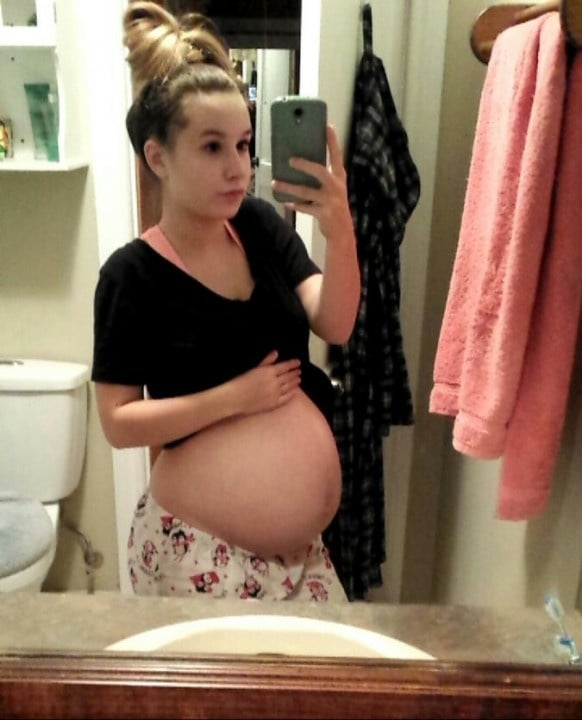
Fragment of social advertising for parents (Kristina Pavlova). Here is an excerpt from a brochure for parents (PSA), which very accurately reflects the emotional background in the family with the news about pregnancy of a minor girl:
For young, unmarried girls - especially for adolescents living at home - almost always the strongest desire is to hide pregnancy from parents, this desire leads hundreds of girls to abortion every day: “My mom is going to go crazy!”, “Father will kill me!”, “It will break their hearts - they shouldn't know about it." Think about it: minors can do abortion, and the parents won't even know about it. Your teenage daughter can decide pregnancy problem without your participation. Of course, find out that your daughter became pregnant under not the most beautiful circumstances, is test, one of many in the life of parents. In fact, your emotions can match her emotions: fear for her future, denial, guilt, etc. And besides, most likely you will feel anger, which can be expressed differently. You are angry with your daughter for her imprudence, for not listened to your advice, did not listen to good instructions, disobeyed you, etc. Are you angry at the man (or guy) who abused your trust and well-being of your daughter for your own pleasure. You angry at the whole culture that allows irresponsible sex to flood TV screens and rock music. Perhaps you are angry with yourself - in many ways reasons. Have you been too strict or too soft, too busy or too tired to be interested in her world for the last few months. And now, here's what happened...
You are angry with your daughter for her imprudence, for not listened to your advice, did not listen to good instructions, disobeyed you, etc. Are you angry at the man (or guy) who abused your trust and well-being of your daughter for your own pleasure. You angry at the whole culture that allows irresponsible sex to flood TV screens and rock music. Perhaps you are angry with yourself - in many ways reasons. Have you been too strict or too soft, too busy or too tired to be interested in her world for the last few months. And now, here's what happened...
Classic for you The Chinese character for "crisis" is of great importance in this situation. The hieroglyph consists of two others, meaning the words "danger" and "opportunity". The danger is that pregnancy can become a wound for your family to heal. which may take years. Abortion at a young age is especially dangerous subsequent infertility. By pushing her to have an abortion now, you can forever be without grandchildren. Threatening, cursing, scolding, you risk destroying love and trust between you and your child, and then in another difficult life period she simply will not come to you, because she will not believe in your help. The opportunity is that you can earn your daughter's respect to the end. life. You can help her grow up, learn to take responsibility for her deeds. You can help bring your loved one into the world grandson.
Threatening, cursing, scolding, you risk destroying love and trust between you and your child, and then in another difficult life period she simply will not come to you, because she will not believe in your help. The opportunity is that you can earn your daughter's respect to the end. life. You can help her grow up, learn to take responsibility for her deeds. You can help bring your loved one into the world grandson.
5. Social difficulties associated with the need to complete education and get a job.
Acting as a young mother in an industrialized country can influence its education. Teenage mothers are thought to be more likely to drop out of high school. Research found that many teenage mothers dropped out of school before how to become pregnant, and those of them who studied at school during their pregnancies, also often completed their schooling, like their peers. The need to complete education is one of the main reasons that called minors when choosing abortion. But most often behind this argument the deeper psychological motives of the girl or her relatives are hidden. If before she skipped school, had poor academic performance, then the fear of being left without education is connected primarily with past experience, and not with the present pregnancy. If the girl is good studies, then pregnancy will not reduce her abilities, it’s just that sometimes you need to choose other alternative form of education (free attendance, evening school and etc.).
But most often behind this argument the deeper psychological motives of the girl or her relatives are hidden. If before she skipped school, had poor academic performance, then the fear of being left without education is connected primarily with past experience, and not with the present pregnancy. If the girl is good studies, then pregnancy will not reduce her abilities, it’s just that sometimes you need to choose other alternative form of education (free attendance, evening school and etc.).
6. They don't know their rights.
Minors are most often poorly informed about their legal rights, cannot assert their rights to the child.
7. High risk of infertility after abortion.
The pregnant woman should also be aware of the particular danger abortion at an age when the body is not fully formed, which may affect in future. The percentage of development of gynecological diseases is very high and secondary infertility after abortion in a minor.
8. Negative stereotypes from society.
Society as a whole is dominated by a negative attitude to underage pregnant women, they can be expressed in different labels, which people "hang" on the girl, even if this is not true: "she is a bad mother", "probably from a bad, drinking family", "her child will be unhappy, abandoned, difficult", "she is a walking, depraved." The strong emotions of the girl's relatives are often caused by fear of opinion. surrounding, in front of these negative stereotypes.
It is important to say that negative stereotypes in regarding underage pregnant women are of a sociocultural nature. On for many centuries, women married at 12, 13, 14 years old, and gave birth to children correspondingly also early. Here are just a few examples from history: The Queen England in the thirteenth century. Eleanor of Provence was 14, 16 and 17 years old when she gave birth her first three children with her husband, King Henry III of England: respectively the future King of England Edward I, Margaret of England and Beatrice of England.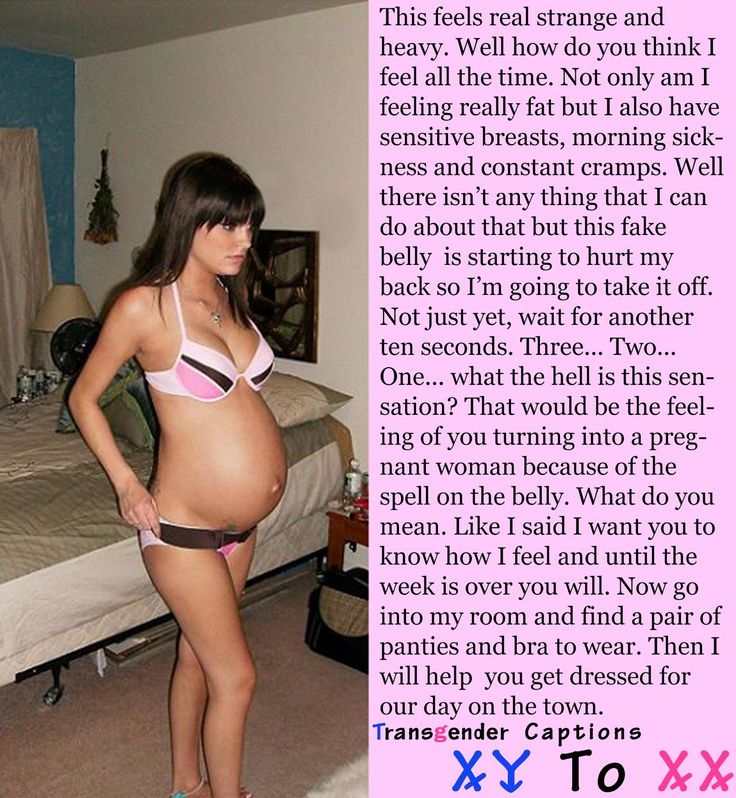 Mary of Bohun, first wife of King Henry IV of England, gave birth to her first child Edward at the age of 13 years. Lady Marguerite Beaufort aged 13 gave birth to her only child, who later became King Henry of England VII. These examples could go on and on.
Mary of Bohun, first wife of King Henry IV of England, gave birth to her first child Edward at the age of 13 years. Lady Marguerite Beaufort aged 13 gave birth to her only child, who later became King Henry of England VII. These examples could go on and on.
Until the 20th century, a girl by the age of 15-16 was completely psychologically ready for marriage: she was trained to manage all cases according to household, according to her class, on the example of the younger children of the family was preparing to the birth and upbringing of their own children. From the age of 13, as a rule, they began negotiations of parents with the families of potential grooms about the possibility of matchmaking.
In the 20th century, the age limit for readiness to join in marriage and childbearing began to rise rapidly, and is now at the level completion of secondary education, i.e. 18 years. Under the age of 18, a teenager is practically has no chance to earn and provide for himself, but how As a result, we are financially dependent on our parents.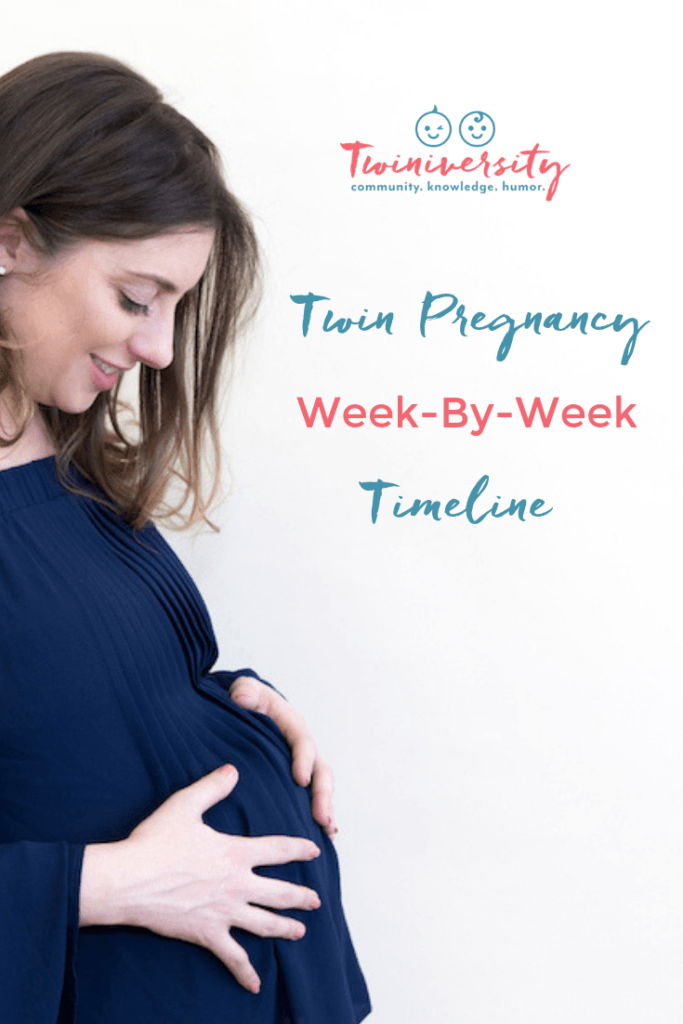 Until legal age the teenager is under parental care, which does not allow him to take take full responsibility for your life. Moreover, in our society, even mere entry into the age of majority does not mean a psychological growing up of a young man, since he still continues to be on maintenance of parents. All this contributes to the prolongation of age. psychological infantilism, and slows down the maturation of a young girl for mother's role.
Until legal age the teenager is under parental care, which does not allow him to take take full responsibility for your life. Moreover, in our society, even mere entry into the age of majority does not mean a psychological growing up of a young man, since he still continues to be on maintenance of parents. All this contributes to the prolongation of age. psychological infantilism, and slows down the maturation of a young girl for mother's role.
9. Often, judgment from an underage mother is transferred to the child. There are studies that emphasize the negative impact on development child of the fact of the minority of his mother. Figures have been received for a higher statistics of poor school performance, jail time for boys, and early sexual intercourse and childbirth for girls born to young mothers. Eat evidence that teenage mothers are less likely to caress your children with touches, smiles or sounds, or being sensitive and attentive to the needs of the child. In society, one can observe the presence of sympathetic - a negative attitude towards a child born to a young mother. They pity him in advance and predict an unhappy difficult future. Often the argument that the child will feel flawed that his mother will not be able to properly educate him and as a result, when he grows up, he will not be able to achieve anything in life, is given by the parents of the pregnant woman and by herself to explain the abortion. Such cases, it is important to say that the upbringing of the child, the development of his spiritual world and subsequent success in life are determined not by the age of the mother, but by her desire to love and care for the child. You can give examples of mothers older people who leave their children, and 16 their mothers who do everything possible and impossible for their baby.
In society, one can observe the presence of sympathetic - a negative attitude towards a child born to a young mother. They pity him in advance and predict an unhappy difficult future. Often the argument that the child will feel flawed that his mother will not be able to properly educate him and as a result, when he grows up, he will not be able to achieve anything in life, is given by the parents of the pregnant woman and by herself to explain the abortion. Such cases, it is important to say that the upbringing of the child, the development of his spiritual world and subsequent success in life are determined not by the age of the mother, but by her desire to love and care for the child. You can give examples of mothers older people who leave their children, and 16 their mothers who do everything possible and impossible for their baby.
Known Teenage parents and their children: In 1917, 17-year-old Kamala Nehru gave birth to a daughter, Indira (later Prime Minister India). Ann Dunham got pregnant at 17 and at the age of 18, in 1961, she gave birth to the 44th President of the United States, Barack Obama. Dwayne has Michael Carter Jr. famous rap artist known as "Lil' Wayne", daughter Regina was born by now ex-wife Antonia "Toya" Johnson when he was 15 and she was 14. The presence of a child did not prevent him from achieving huge popularity in the United States and earn a good fortune.
Ann Dunham got pregnant at 17 and at the age of 18, in 1961, she gave birth to the 44th President of the United States, Barack Obama. Dwayne has Michael Carter Jr. famous rap artist known as "Lil' Wayne", daughter Regina was born by now ex-wife Antonia "Toya" Johnson when he was 15 and she was 14. The presence of a child did not prevent him from achieving huge popularity in the United States and earn a good fortune.
10. Increased risk of child abandonment after birth.
According to sociological data, the frequency of such social phenomenon, such as child abandonment, in young mothers is 2-3 times higher than this rate in older women. Researchers cite 2 main reasons such failure statistics:
a) Late detection of pregnancy and contacting a doctor. So those girls who wanted to have an abortion, forced to give birth. But, not wanting to take on the role of a mother, prefer to abandon the child.
b) Fear of disclosure of pregnancy before family.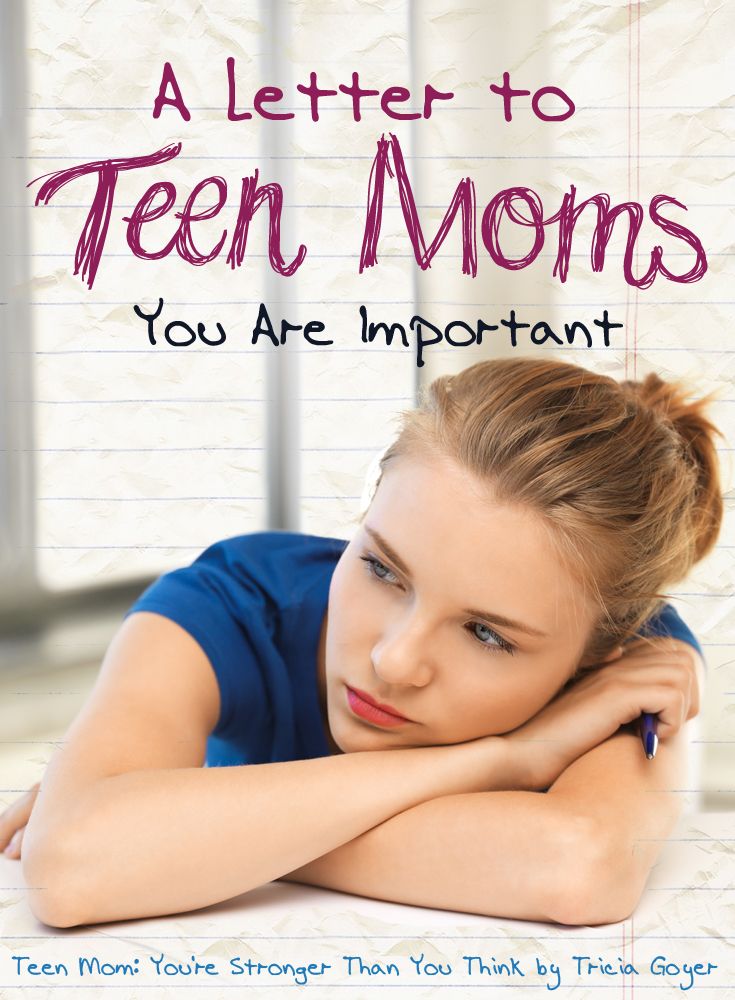 Such girls can keep pregnancy due to late diagnosis or because of pity for the child. In those cases when a girl feels sympathy and tenderness for a child and does not want to kill him, fear of the reaction of her parents deprives her of the strength to defend in front of them their right to motherhood. In such cases, most often there are violations the relationship of a girl with her own mother, when she stubbornly “does not notice” signs of pregnancy daughter.
Such girls can keep pregnancy due to late diagnosis or because of pity for the child. In those cases when a girl feels sympathy and tenderness for a child and does not want to kill him, fear of the reaction of her parents deprives her of the strength to defend in front of them their right to motherhood. In such cases, most often there are violations the relationship of a girl with her own mother, when she stubbornly “does not notice” signs of pregnancy daughter.
c) Family pressure. If in previous types of situations, the girls hid the pregnancy from the family, in this case - relatives know about the pregnancy and it is they who force the girl to take this step.
In these situations, work with the social surrounded by a pregnant woman, because it is extremely difficult to cope without their support.
It is important to identify the level of "psychological maturity, adulthood" girls. Understand how she is personally ready to accept the role of a mother, at what stage of separation (separation) from her own mother she is. How “less” psychological age of the girl than she is more attached to her mother, emotionally dependent on receiving parental love and support, the more in making the decision and in the subsequent care of the child will be the role of her parents.
How “less” psychological age of the girl than she is more attached to her mother, emotionally dependent on receiving parental love and support, the more in making the decision and in the subsequent care of the child will be the role of her parents.
If the girl is “psychologically” mature enough, matured, then she can quite successfully cope with her motherhood. Here it is important to help her enter a new social circle, a group of young mothers. Because, most likely she will move away from her peers due to the difference interests and life goals after the birth of a child. It is important for such a girl to help in obtaining knowledge about child care, the developmental features of the baby and his needs. Help with certain social issues: getting education, help with things for the child, etc.
If a girl is identified "psychologically" immature, who herself is still deeply dependent on her own parents and therefore is simply not capable of accepting motherhood at this age, then here deeper psychological work is required.
